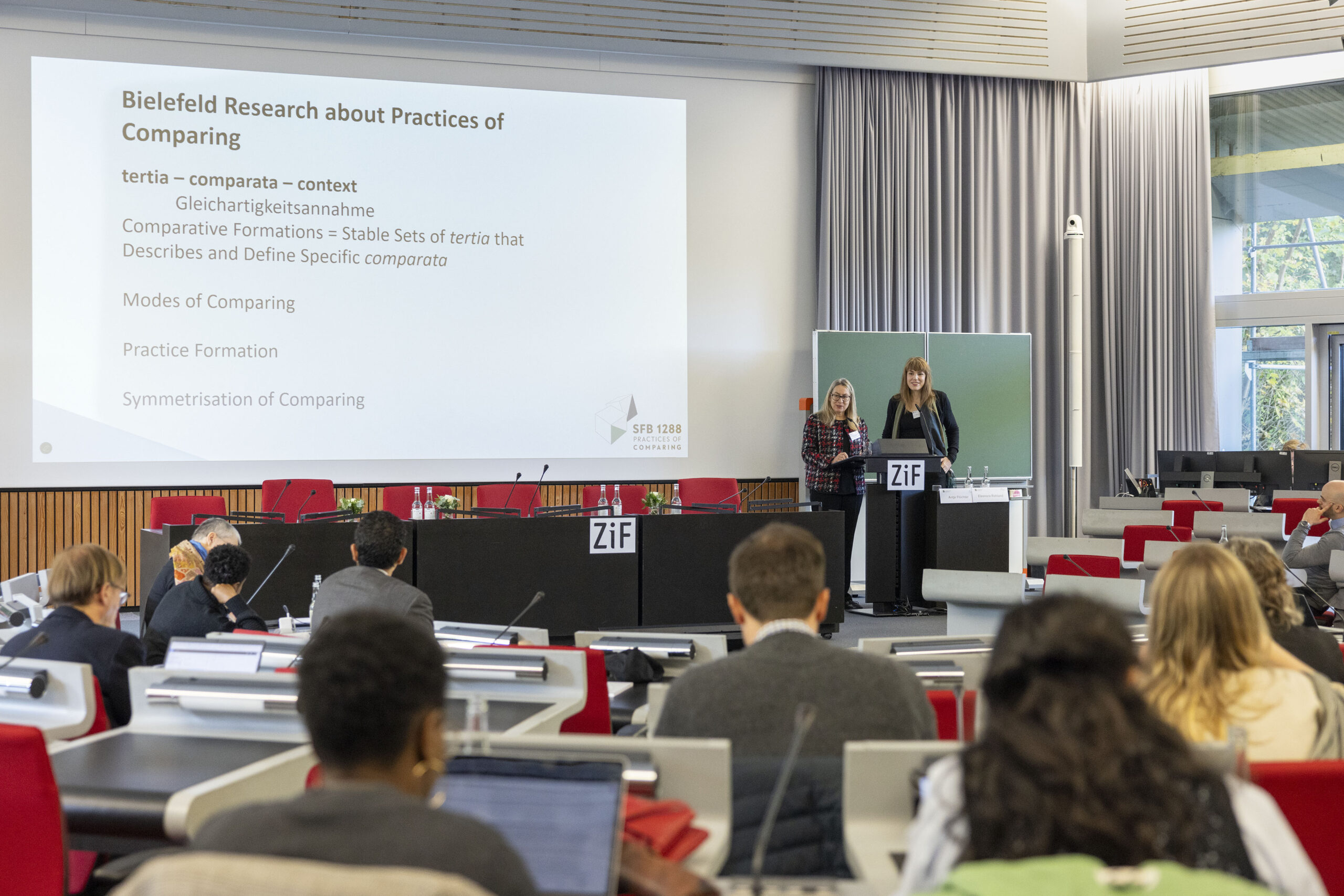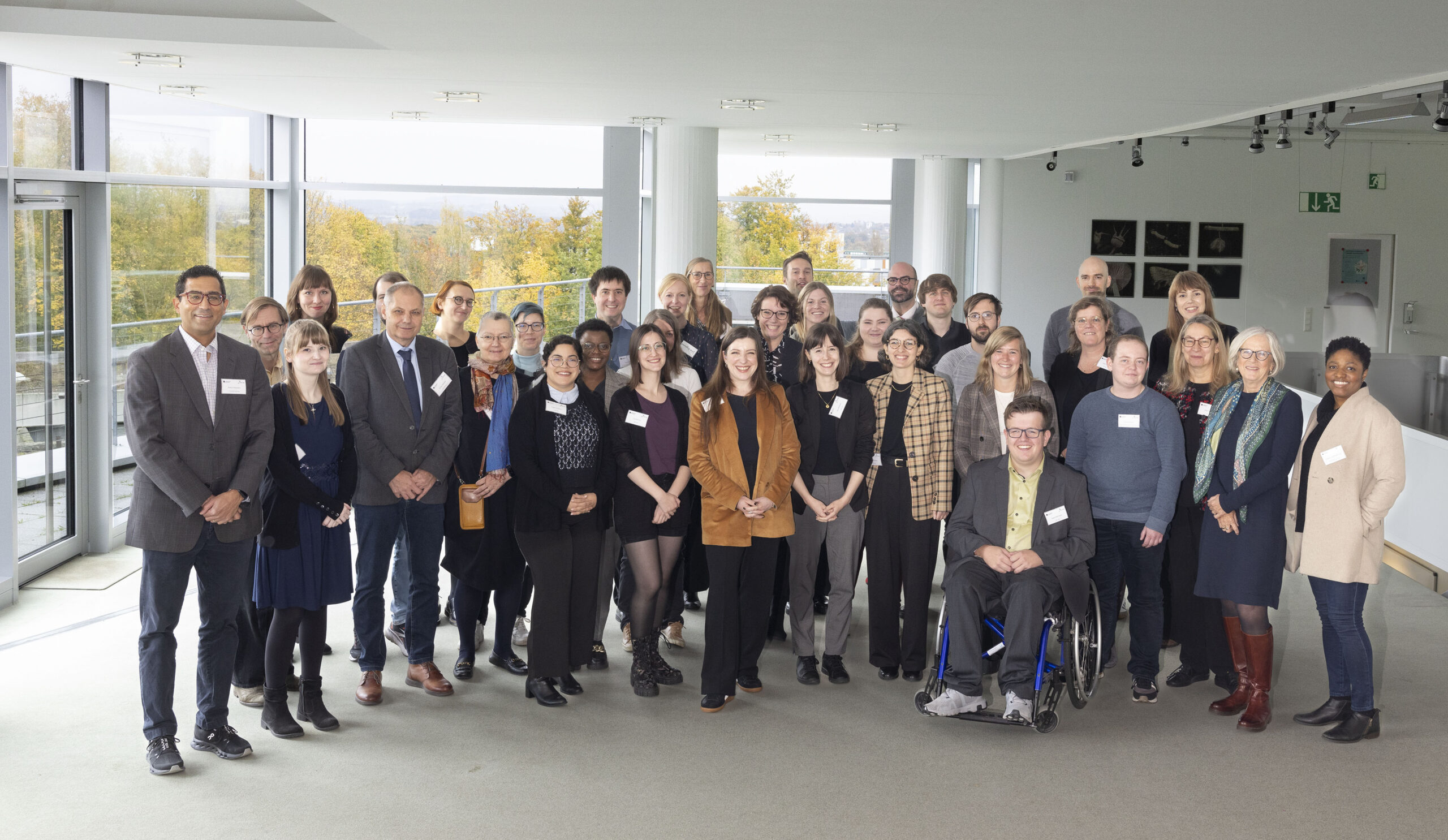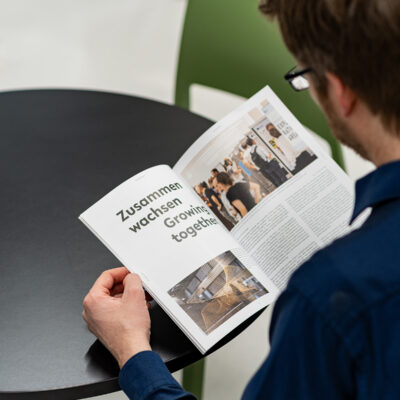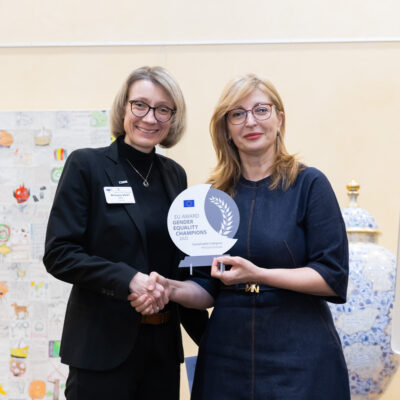For the past eight years, the Collaborative Research Centre (SFB) 1288 ‘Practices of Comparing’ has focused on exploring comparative practices and their impact on historical, cultural, and social structures. Time to take stock. In this interview, the leadership team – Professor Antje Flüchter, Professor Maximilian Benz, and Professor Martin Petzke – look back on past project phases of the interdisciplinary SFB and talk about insights, successes, and the significance of their research for our everyday lives.
What insights into comparative practices has the SFB 1288 gained so far?
Martin Petzke: It has been a given that comparisons play a significant role in the construction of a cultural hegemony of the West since Edward Said’s study of Orientalism, if not before. However, the fine mechanics of comparison have so far been largely neglected. In the Collaborative Research Centre, we want to open up this black box in order to map the effects of comparative practices more specifically. In other words, we are interested in shedding light on the logic and modalities of comparison and their connection to social change.
Maximilian Benz: We now have key insights into various typologies of comparison, particularly their explicitness. It makes a difference whether a comparison is addressed directly, subtly implied, or remains partially hidden. One example of implicit comparison is devaluation, a process in which we tacitly use our own position as a benchmark. Such comparisons not only serve to affirm our own sense of self, they virtually institutionalise the self-perceptions associated with them.
Antje Flüchter: Another typology concerns the forms of comparison, which can relate to space or time. Comparisons over time can give the impression of progress or regression. It also plays a role whether the comparison is visual, linguistic, or numerical, since each form has its own particularities. This becomes clear in quantitative comparisons, which often appear academic and therefore objective. The regular repetition of the comparison, as in rankings, is also a deciding factor, since the effects on what is being ranked often arise from this interval-like nature of the comparison.
Maximilian Benz: These typologies are the joint outcome of all projects. They have provided us with a set of instruments for describing the effects of comparisons in a more nuanced and sober way than has so far been the case in postcolonial criticism. We can thus pose the fundamental question of the genealogy of Western modernity somewhat differently and dissect it with new analytical tools.
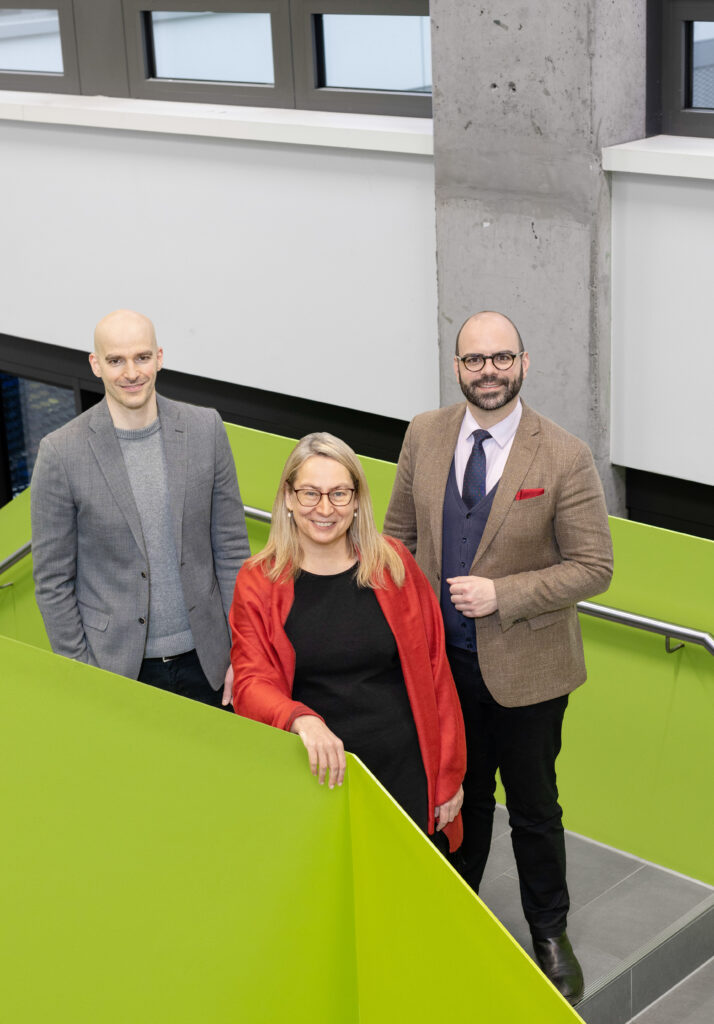
© Philipp Ottendörfer
Have there been any unexpected findings?
Maximilian Benz: Absolutely. Our research on comparisons has not only addressed the construction of the hard epochal division between pre-modern and modern times, but has also softened it. This is because our comparison of the two epochs makes the act of comparing itself the object of study. Comparing is often seen as something specifically modern. Conscious, well-thought-out comparisons that are clearly defined are ascribed to the ‘modern age’. But our projects show that this clear-cut distinction is not tenable. In the Middle Ages and the Early Modern Period, comparisons were made, but they were less explicated and theorised.
Antje Flüchter: Comparison was an everyday practice in the early modern estate-based society with its disputes over rank. But the hierarchical structure of the underlying criteria wasn’t reflected upon and theorised until it was argued in court in the 18th century. From antiquity to the present, we find diverse and complex practices of comparison, such as the ethnographic comparisons in ancient Rome, which skilfully criticised the emperor. Many comparative models considered ‘pre-modern’ have also survived into modernity and are experiencing a renaissance. In many ways, then, the ‘modern’ and the ‘pre-modern’ are intertwined. In terms of comparative theory, this makes the epochal division much more complicated. We are interested in the processes of change, which we want to describe in a differentiated way.
What kind of synergies have resulted from the collaboration between the various subprojects and disciplines in the SFB 1288?
Maximilian Benz: Interdisciplinarity is particularly prevalent in this SFB. Not least because sociology and political science have always had a strong historical focus in Bielefeld and, conversely, history and literary studies are strongly oriented towards social theory. The boundaries have been fluid from the very beginning. Interdisciplinarity challenges us all. We have to look beyond our narrow professional perspectives. It isn’t a zero-sum game. Discussion expands our respective parochial reasoning and is a prerequisite for arriving at universally valid judgements.
Antje Flüchter: We ourselves feel this dynamic even in discussions in the leadership team, in which history, literary studies, and sociology are represented. The different temporal, social, and cultural contexts of the various subprojects serve to correct, confirm, and relativise one another.
Martin Petzke: One is tempted to quote Hegel and say that the truth is the whole.
What do the Collaborative Research Centre’s research findings teach us that we can apply in our daily lives?
Martin Petzke: Our conceptual apparatus allows for an analytical perspective on comparisons and their effects, which are ubiquitous in public discourse. In the SFB, for example, we have examined Holocaust comparisons and explored the logic of outrageous and scandalising comparisons. Our approach is not to evaluate comparisons, but to focus on their complex forms and consequences. Ultimately, in honing in on comparisons in this manner, we can add some nuance and analytical distance to debates that can easily overheat when controversial comparisons come into play.
Antje Flüchter: Our aim is not to examine the accuracy and appropriateness of the comparisons, but to understand how comparisons work and how they stabilise or change the world. For example, the emergence of car comparisons in women’s magazines in the 1970s influenced not only new car models but also the change in gender roles. Our analytics help to better understand practices of comparing – ultimately allowing discussions to be conducted in a more objective and productive manner.

How do you plan to interlink the existing subprojects more closely in the future?
Antje Flüchter: In the – hopefully – third funding phase, we will explore the productive power of comparative practices for processes of change. We will therefore be drawing a grand conclusion from eight years of comparative research and raising the big question of historical change – that is, the lasting and far-reaching change situated on the macro level and often inextricably linked to comparative practices.
Will there be an overarching theory of ‘practices of comparing’?
Maximilian Benz: It is precisely this promise of such a theory regarding the relationship between comparative practices and historical change that we want to develop in the third funding phase in our theory laboratory – building on the discussions in the synthesis projects.

